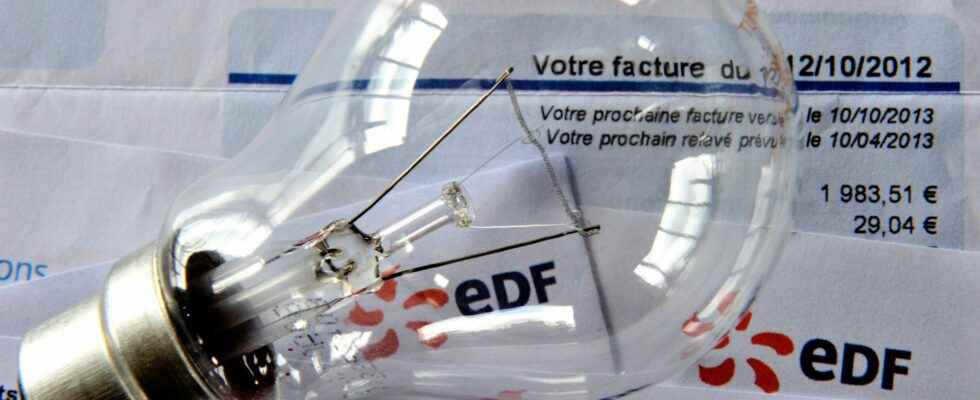Can the mild temperatures reverse the trend on the energy bill of Europeans and French people? While hell was promised on the Old Continent at the time of winter, with the fall in Russian gas supplies and the low availability of means of electricity production, which together were to lead to an uncontrollable rise in prices or even episodes of cuts, the wave of abnormally high temperatures for the season, observed across the continent, brings some respite.
For several days now, the wholesale prices recorded on the European electricity and gas markets have indeed been falling quite significantly. Symbol of this decline, the Dutch TFF, benchmark index on the gas markets, is displayed on Tuesday, January 3 at 77 euros per megawatt hour. A level that it had not reached since February 22, 2022, a few days before the start of the war in Ukraine. This summer, while the Europeans were rushing on each molecule to fill the stocks in order to get through the winter, it had exceeded the bar of 340 €/MWh. Electricity prices, which are also linked to those of gas when a gas plant is the last production unit called on the network, are obviously affected. The wholesale price for France for delivery on Tuesday capped, for example, around €140/MWh, compared to nearly €300/MWh a month ago and close to €450/MWh a year ago.
This notable drop is partly linked to very mild winter temperatures, resulting in a notable drop in household consumption. On December 31, the mercury was thus 8 degrees above normal for the season in France. In a heat-sensitive country like ours, electricity consumption from individuals and the tertiary sector has obviously been felt, even beyond the logical drop linked to holidays. Beyond that, the voluntary reductions in consumption linked to the sobriety chosen or suffered – the temporary or prolonged stoppages of production by certain manufacturers because of the soaring prices since the beginning of the year, have also made it possible to reduce 8.7% the country’s consumption over the last four weeks ended December 25, compared to the average for the years 2014-2019, according to RTE.
Substantial reductions in consumption
The picture is hardly different when it comes to gas. In many countries such as Germany and the Netherlands, gas consumption linked to the residential sector has also been revised downwards with the warmer temperatures. A few days ago, the European Union also noted in a report that average gas consumption for the months from August to November 2022 was down 20.1% compared to the average for the period. 2017-2021. The result of a policy of voluntary reduction of consumption as much as that suffered by certain manufacturers, particularly in Germany. As a result, on January 1, stocks were still 83% full, compared to 52.73% at the same time last year according to Gas Infrastructure Europe, which logically reduces the tension on prices.
However, it is difficult to know if this decline will be sustainable. Europe is obviously not immune to a cold spell in the coming weeks which would seriously undermine stocks given the end of Russian gas supplies. Moreover, whether or not the Chinese economy recovers will necessarily condition the price levels of liquefied natural gas, which Europeans are desperately looking for.
So many uncertainties, which partly explain why it is illusory to believe in a significant drop in wholesale prices in the coming months for the end consumer. It should already be remembered that if they have experienced a significant drop in recent days, the price of Dutch TTF, for example, remains three times higher than in January 2019 at the same time. That of electricity on the wholesale market, twice as high. Furthermore, a one-off drop on the wholesale market obviously takes time before it affects the consumer, whether private or industrial. “That would require a decline that lasts for several months…because the majority of clients have locked in fixed price contracts before the end of the year. The real question is that all the professionals who have locked in very high at the end of December will try to renegotiate”, explains Emeric de Vigan, vice-president in charge of electricity markets at Kpler.
In the meantime, small businesses, industrialists and individuals continue to suffer from high prices. In recent days, the example of bakers has particularly attracted the attention of the public authorities, after a series of publicized bankruptcies suffered by several craftsmen. Prime Minister Elisabeth Borne announced on Tuesday that SMEs and in particular the 33,000 bakers in France will be able to “request the postponement of the payment of their taxes and social security contributions” to save part of their cash flow. Undoubtedly insufficient, in the face of bills multiplied by ten or twelve, which some bakers were moved by. For its part, Bercy has decided to raise its voice with energy suppliers and energy companies who, in its eyes, would not play the game to help their client companies. Minister Bruno Le Maire notably outlined the specter of additional levies on their profits.
